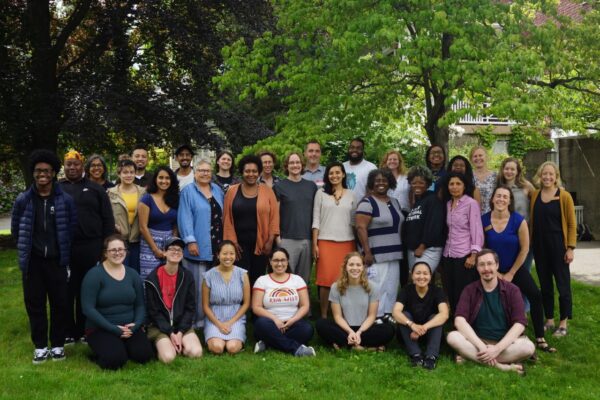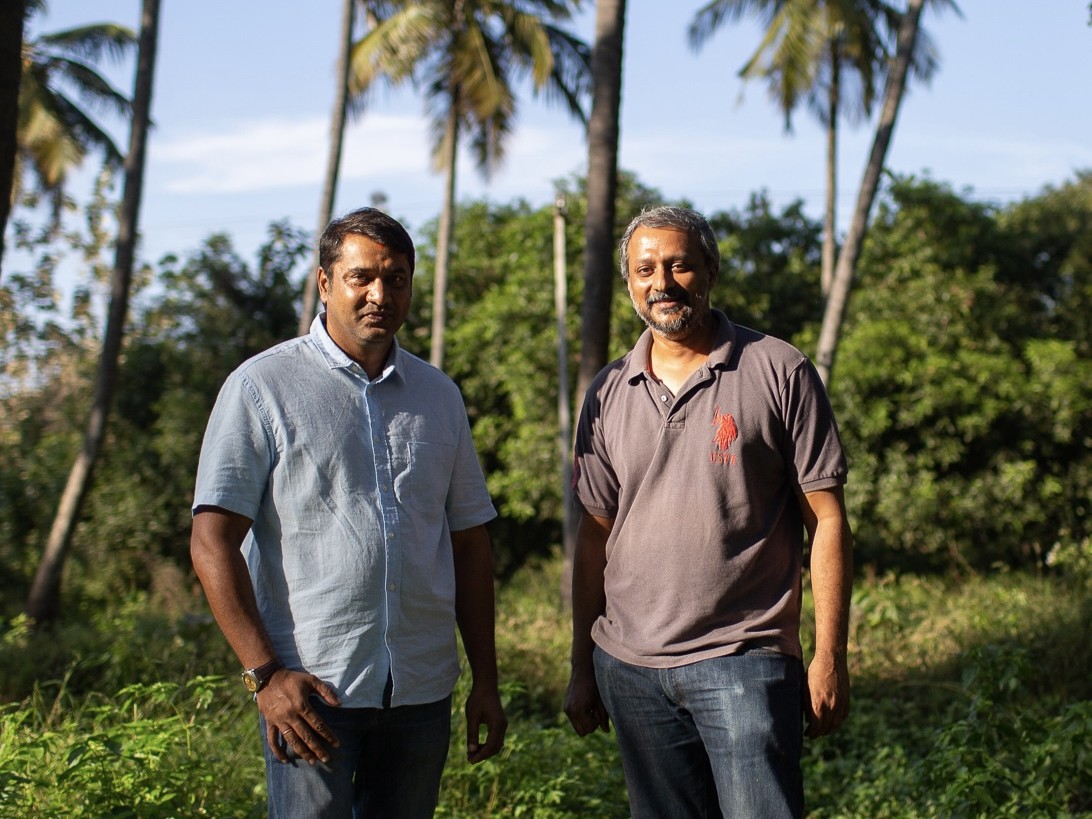While many of RSF’s Social Investment Fund investors are individuals, a growing number of foundations and mission-aligned organizations are investing in the fund. The New England Grassroots Environment Fund joined RSF’s investor community in 2021.
What is your organization’s mission?
The New England Grassroots Environment Fund, Inc, (Grassroots Fund) was founded in 1996 as a funder’s collaborative, with a mission to energize and nurture long-term civic engagement in local initiatives that create and maintain healthy, just, safe and environmentally sustainable communities throughout the six New England states. With a focus of working with those who have often been marginalized, the Grassroots Fund empowers individuals and groups working across a broad range of environmental and social justice issues. The organization is committed to the principles of Just Transition–integrating ecological and social justice into community vision–and we maintain an environmental lens to the work we support.
In 2016 the Grassroots Fund, alongside grantees and community partners, drafted a set of Guiding Practices–Rooted Innovation, Shifting Power in Decision-Making, Equity in Participation, and Centering a Just Transition–that seek to focus on equity, justice and community-based decision-making. These serve as a transformative north star for all the organization’s planning and program implementation since.
These Guiding Practices prioritize support for change-makers facing marginalization through systemic and structural barriers to traditional funding. As a non-endowed, public foundation, the Grassroots Fund provides grants to grassroots projects across New England, many of which are ad hoc or unincorporated groups. Over 60 percent of Grassroots Fund applicant groups do not have this formal tax-exempt status and many have not gone through the intensive work to find and secure a fiscal sponsor aligned with their work which makes it increasingly difficult to access funding to do the work their communities need and want. These grant programs have a participatory decision-making process where readers, who are members of the community, frontline organizers, nonprofit colleagues and funding partners, and Grantmaking Committee members play the central role in determining program priorities and funding allocations, helping to build a stronger, cross-sectional environmental movement.
Why did you decide to invest with RSF?
In the fall of 2020, the Grassroots Fund Board established a short-term Investment Team to identify the Grassroots Fund’s investment needs, limitations and priorities, and establish a baseline of investment options in consultation with several external financial experts. As a 501c3 non-endowed public foundation, the Grassroots Fund was founded on and maintains a commitment to rapid and transparent distribution of funds to grassroots environmental initiatives.
Prior to 2014, the Fund raised and distributed its annual budget with little rollover of assets into subsequent years and minimal need for investment beyond standard checking and savings accounts. Since 2014, the Fund has diligently grown a board-directed Reserve Fund to provide six months of general operating and reduced grantmaking support in alignment with nonprofit management best practices. The current annual budget of $2.6M is raised through about 30 foundation partners and hundreds of individual donors. In addition, over the past few years the Grassroots Fund has received several multi-year grants with temporal, geographic and issue area restrictions that must be met in order to release funds into cash flow. These restricted assets are largely earmarked for future grantmaking, with a small percentage allocated to support the Grassroots Fund’s staffing costs, contracts and honoraria associated with our participatory grantmaking.
Due to the restricted nature of most of the Fund’s assets, the Investment Team considered a range of investment products that could complement our grantmaking aims. Primary objectives included values and mission alignment, principal preservation with the potential for low-risk capital growth and high liquidity to meet needs of the grantmaking cycles. The Investment Team, with the Board of Directors’ approval, elected to invest the majority of the Grassroots Fund’s modest, restricted assets through RSF Fund, given the alignment with these investment values and priorities.

What your hopes for the future of mission-aligned and impact investing?
In both the Grassroots Fund’s grantmaking and investment strategies, the organization seeks to encourage other foundations and individuals to establish and uphold values that center justice and align investment policies with both their grantmaking strategies and organizational values.
Institutional philanthropy as well as financial institutions are historically structured to create a power imbalance through which a privileged few determine the allocation of resources. While the overrepresentation of certain (white, privileged, male, able-bodied, heterosexual, academically educated, etc.) viewpoints isn’t always clearly articulated, it is nevertheless the result of dominant dynamics that are geared towards maintaining the status quo.
With this power imbalance, decisions on who gets funded, and which issues, strategies and policies become funding priorities, are typically made with little or no input from affected communities, grant seekers or grantees. Dominant philanthropic approaches have led to over-investment in top-down strategies and policies, and under-investment in grassroots groups and community-led strategies. These realities have been mirrored in the investment world as well. The Grassroots Fund envisions a future for both philanthropy and the interconnected world of mission-aligned/impact investing where these institutions work alongside communities, creating space for healing, self-determination and the centering of economic, racial and environmental justice toward a Just Transition.


